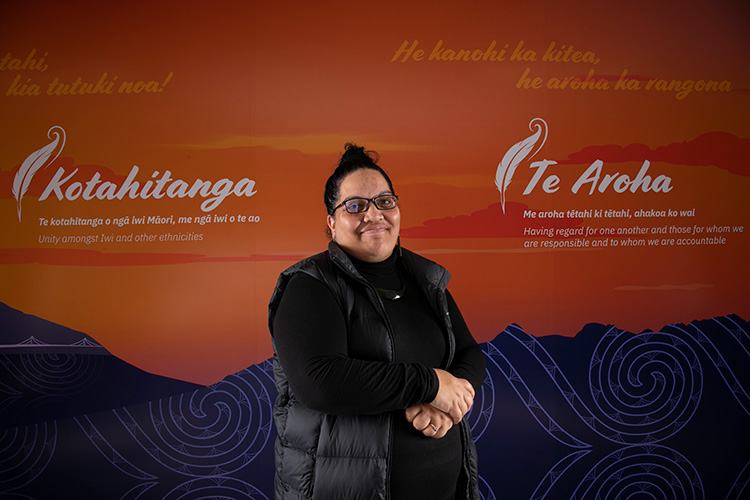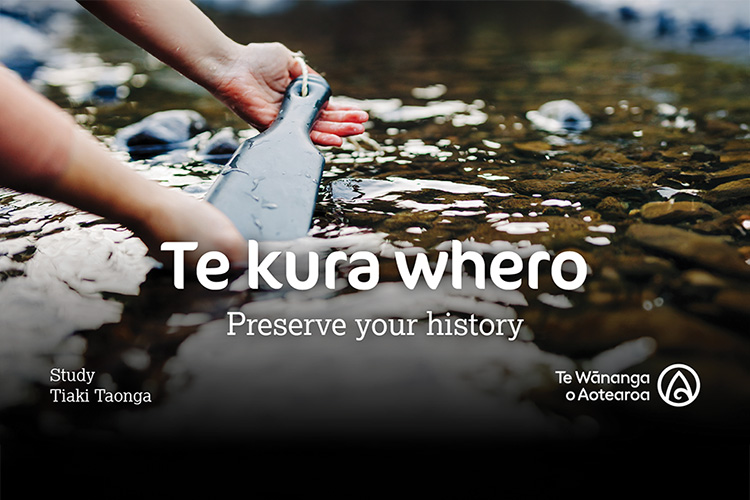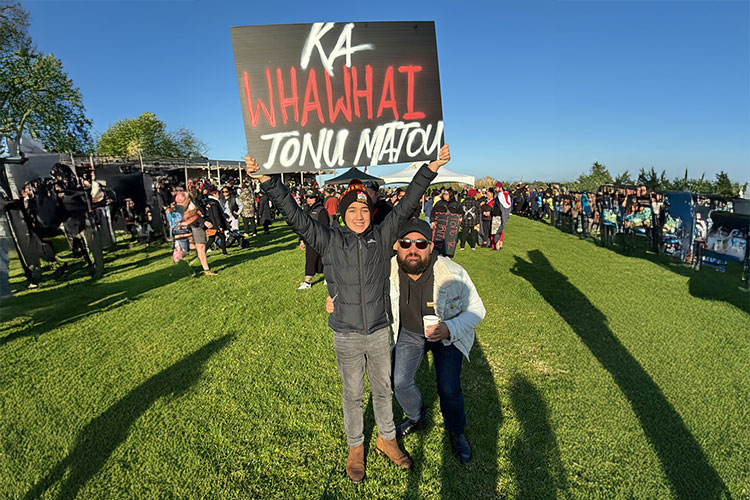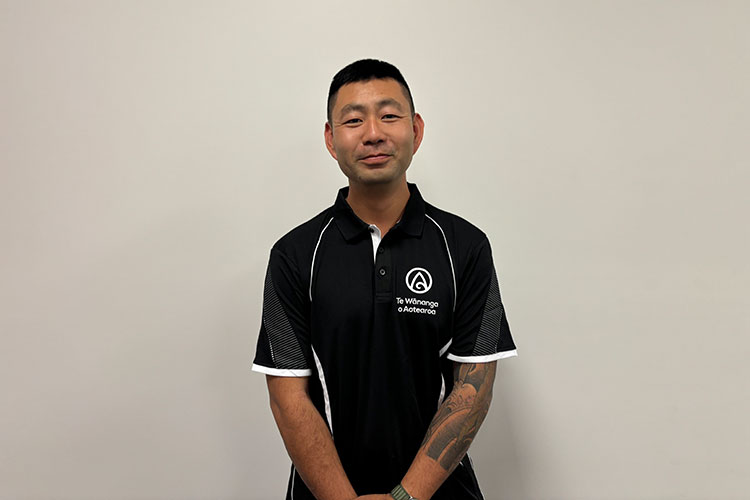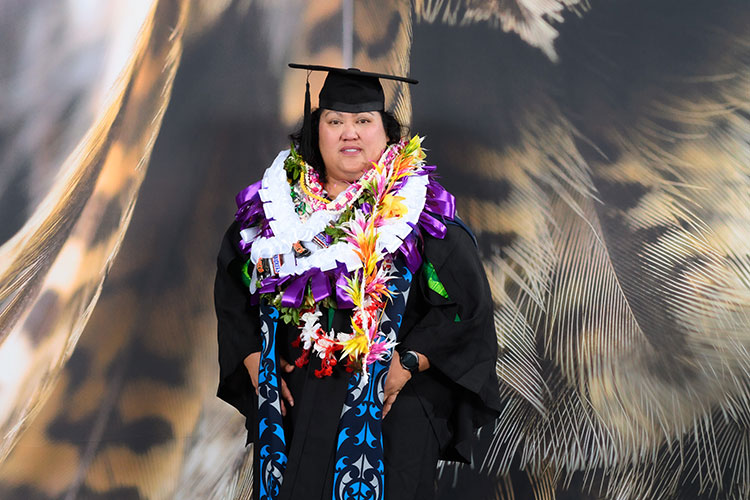Stacey Glassie has a simple way of explaining what tikanga Māori is.
“When people walk into your whare, you don’t just sit there and look at them or walk past them, you mihi atu. When someone gives you a cup of tea, you say kia ora, ngā mihi. Little things like that,” she says.
“It’s a norm. We don’t see it as tikanga, it’s just a way of living, a way of being, and so when you come to teach tikanga, it’s like just teaching how you are, who we are as a people and why we do what we do.”
Stacey teaches Level 3 and Level 4 tikanga Māori programmes at the Ngāmotu campus of Te Wānanga o Aotearoa and has noticed growing interest from non-Māori in learning about tikanga in recent years. It’s a trend she hopes will continue.
“For our non-Māori, who haven’t been brought up on the marae or with tikanga Māori, it’s being able to bring them in safely and show them what our world looks like and then giving them that holistic view and often they realise that this actually works well in their world too.
“I look at it in terms of our community, which has very few Māori, this is a farming community. So bringing in non-Māori excites me because they need to advocate for us to their own, instead of us going into their world. So if this is a safe space where we can teach them those concepts and then make them feel safe and comfortable, then they can go and teach their people.”
Many students enrol with the mistaken idea that they are learning tikanga for themselves, Stacey says.
“That’s how you may see it but realistically, you’re going back home, you’re having a dinner party with your whānau, your practicing tikanga. It’s not about looking at how can I achieve things for myself, we look at it from the view that what benefits me will benefit the people.”
“It’s like when I do karanga on the marae. I don’t do karanga for me, not at all. Nor do my tungane when they stand on the paepae. We are just the mouthpiece of our whare, of our tūpuna so I try and teach them to see that view.”
Stacey grew up on her marae and took the principles she learned there into her home.
“Those principles and values of kotahitanga, manaakitanga, whakapono, all of those principles that we know, if those are the underpinning principles of why we practice tikanga, then you’ll always carry out that process with those in mind. Those principles weren’t taught to me, they were just practice.”
Stacey says the tikanga programmes are ideal for “anybody that’s willing to have an open mind and open heart”.
“I think there are life-changing benefits in terms of understanding why we do what we do as a people and having a respect for that rather than just taking it for granted. Come into our world and have a look and see what it looks like, being a part of us and our process. Understand before judging, then once we’ve finished this you can sit back and reflect. It’s about making them comfortable and not afraid to go to our marae and be a part of how we do things.”
































